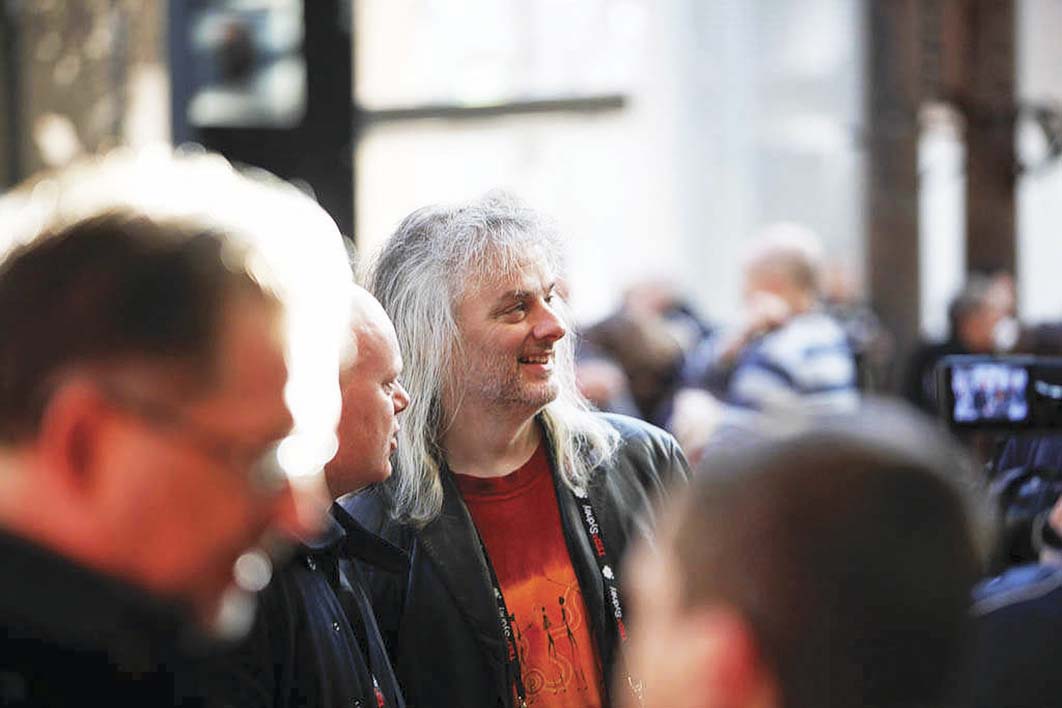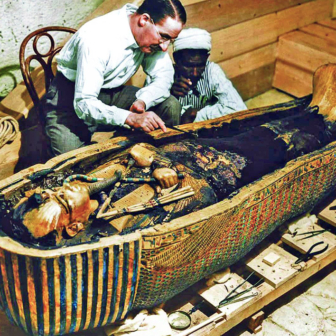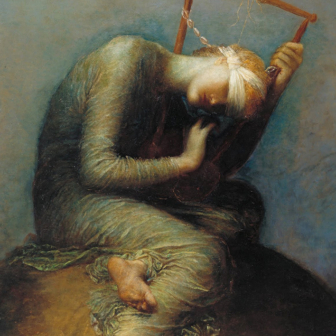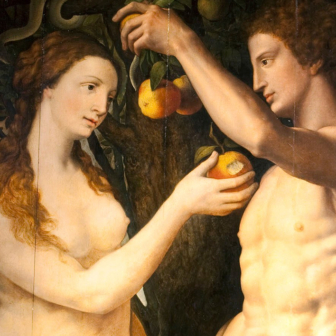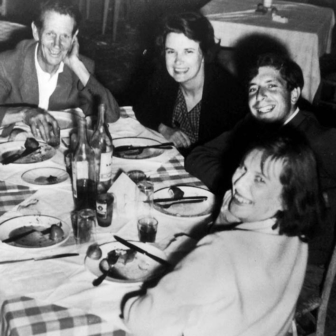I WAS off to visit one of the world’s foremost philosophers of the mind, and it had got me thinking. As I started the drive to Canberra, the radio was bringing news about the riots in Britain, the collapse of world stock markets and the vicious repression of dissidents in Syria. So I turned off the distracting world at large and tried to concentrate on the world in my head. I tried to take note of my thought processes – to be aware of my unique awareness and cognisant of my singular perceptions. What was I thinking? Or feeling? Or experiencing?
Luckily it was a beautiful, clear winter’s day, perfect for driving – and therefore perfect for thinking. I swept down the highway, aware of the speed limit but anxious about being late. I became conscious of my mind and its incessant wandering and jump-cutting. Associations bred thoughts, which resulted in feelings, which then changed into something else again.
Look: a dead fox by the side of the road. “Not so clever now, eh, Mr Fox?” I thought. When did I see Fantastic Mr Fox? Was George Clooney in that? Look at that, another dead fox. Two in just two… Watch out, you’re nudging 120 again… A detour through Goulburn because of a truck crash – bugger, bound to be late now. Oh, the Big Merino. I went on a school excursion there when I was eleven – thought it had closed down.
Is this really my consciousness in action, all over the place like a maggot on a hot chop, I asked myself. (Phew, the Federal Highway at last, almost there!) Well, yes, I guess it is.
And then I was skirting the edge of Lake George. I focused on a single memory. My father’s work as a travelling salesman took him to Canberra along this road many, many times and he once told me something interesting about Lake George.
Sometimes, he said, it’s full, and sometimes it’s largely empty. I looked across the vast expanse of grass that is Lake George today, towards the wind farm far on the other side. The water rises and falls, my father used to tell me, but no one knows where it comes from or where it goes; it’s all a bit of a mystery. There were theories, of course – high evaporation rates might lead to sudden drops in the lake’s depth; maybe hidden aquifers disperse it into the Yass River. But no one really knew for sure. At least that’s how he told it. It sounded a bit like the study of consciousness.
“WHEN I was ten, I got glasses for the first time because I was short-sighted in one eye. The whole world moved into 3D; it suddenly got somehow deeper.”
David Chalmers, professor of philosophy and director of the Centre for Consciousness at the Australian National University, is telling me about the first time he really became aware of the problem of consciousness. “Suddenly I had binocular vision and the world just popped out. And I thought, what the hell is going on here?”
The young Chalmers knew enough to realise that there was a scientific explanation for what he was experiencing. Yet he felt – intuitively – that there was more here than met the eye. Literally. “Why does it feel like this? From the inside? Why does it sort of just pop out, subjectively?”
Although he didn’t realise it at the time, Chalmers had discovered the question that would still dominate his intellectual life nearly forty years later. “How does all that objective stuff – the processing of the brain that you might understand from a mechanical point of view – how does that produce subjective experience?” And nobody, says Chalmers, really knows the answer.
The adolescent Chalmers was a self-described “science geek,” the nerdy kid who read books like Douglas Hofstadter’s bestseller on the mysteries of cognitive science, Gödel, Escher, Bach: An Eternal Golden Braid. By the time he got to Adelaide University he was well on his way to a career as a mathematician.
But the interest in philosophy, particularly the philosophy of the mind, lingered. “You scratch a scientist and you’ll find a philosopher,” he says. “Get them in the pub and give them a few drinks and pretty soon the physicists who’ve been talking about their experiments will be asking, What does it all mean? What is time? How does the mind work?”
Chalmers did very well at university – except in the one philosophy subject he took. He didn’t fail, but he didn’t excel at it either. Then he got a Rhodes Scholarship and went to Oxford in 1987 to do a doctorate in mathematics. But his heart wasn’t in it.
He had come to the view that the frontiers of mathematics had already been thoroughly explored. “There are big problems in maths, but they’re not fundamental problems. The most fundamental but unanswered questions in science were to do with the mind.” He wanted to do philosophy and he wanted to study consciousness.
So a young man with a brilliant track record in one subject decided to follow his passion and start almost from scratch in another tough field of intellectual endeavour. And then of course he had to tell his parents.
It was, he says now, a bit of a difficult time. “At one point my Dad said, Don’t tell me you’re going to spend your life looking for the soul? And I said, Yep, that’s pretty much it. But now I think he’s made his peace with that decision.”
When Chalmers finally decided it was philosophy or bust, he looked into using his Rhodes Scholarship to do an undergraduate degree in the discipline. “Oh, no – you don’t want to do that,” he was told. “You should go straight into the graduate program.” Chalmers was a little taken aback: “What kind of Mickey Mouse field is this?” He remembers thinking that in maths it would be “totally impossible” to slip into a discipline in this way.
Oxford philosophy, he soon discovered, was not his cup of tea. A bit conservative, a bit too concerned with language, and not fascinated enough by the questions that fascinated him. So he wrote to the man whose book had made such an impression on him as a teenager. And Douglas Hofstadter wrote back to him, and said he should come to Indiana University. Chalmers’s first thought was: “Where’s Indiana?” And his second was: “When can I get there?”
When he finally arrived at Hofstadter’s Center for Research on Concepts and Cognition to research his PhD in 1989, he discovered three things. He had found his life’s work. He had joined the community of scholars he needed to pursue it. And, to top it all off, he had arrived at one of the world’s pre-eminent research centres devoted to the study of consciousness just as interest in the area was reawakening all around the world and across a number of disciplines. His timing was perfect.
After laying dormant for a good part of the twentieth century, it’s difficult to say exactly why the problem of consciousness took off in the early 1990s. But there were some key developments around this time.
The development of Magnetic Resonance Imaging, or MRI, and other brain scan technologies revolutionised the study of neuroscience in the early 1990s. And when the functional MRI came on the scene a little later, scientists had the ability for the first time to map the brain and its processes as they occurred. They could watch as different parts of the brain responded to external stimuli. They could observe the neural correlates for speech, or vision or fear. So could neuroscientists armed with an MRI machine unlock the mystery of consciousness?
Suddenly, consciousness was cool and people wanted to talk about it. At about the same time renowned scientists started to take a keen interest in speculating about consciousness. Francis Crick – one of the discoverers of DNA – published The Astonishing Hypothesis: The Scientific Search for the Soul and declared that “consciousness is now largely a scientific problem.” A little while later the American philosopher Daniel Dennett entered the arena with a book titled simply, Consciousness Explained.
So there it was: consciousness was in plain sight, its understanding easily within our grasp. David Chalmers wasn’t so sure.
THE MAN who answers my knock on his front door is tall, with long, greying hair. He famously favours bright T-shirts; today it’s an Aboriginal design in red and yellow. He might be one of Australia’s leading philosophers, but to me he looks like the keyboardist from a band that was big in the eighties.
Chalmers lives in a large, modern brick house surrounded by bush in the hills above Queanbeyan. It has a pool and a beautiful outlook. I ask him why a man who lives alone needs such a big place. He explains it’s because of the guests. Chalmers is always entertaining philosophers at his home, from visiting professors to questing postdoctoral students; he’s the sort of philosopher who loves a good party almost as much as he likes a good paradox. His website contains everything from the most abstruse of his scholarly papers to a collection of jokes about philosophers, as well as an archive of photos commemorating the many conferences and gatherings of philosophers he attends each year.
But to get the work done he leads a sort of double life: alternately monkish and convivial. Chalmers maintains two studies in his house. In one he accesses the internet and deals with the myriad emails his life as a philosopher generates. “Philosophy is a very interactive subject,” he explains. “We talk to each other, we argue, we bounce ideas around.”
But his other study is not connected to the world; it’s for the hard work, a place where he can’t be distracted by the Net or phone calls. Sometimes he hunkers down here for several days at a time, working long hours, alone and focused, only emerging for a walk in the bush or meals before heading back to his desk.
Chalmers has always thrived on hard work and sociability. When he got to Indiana in 1989 he discovered he was working among artificial intelligence experts, psychologists and other philosophers. The philosophy of the mind was in foment at the time and he had landed in a place where it dominated discussion. He submitted his doctorate by 1993. And the next year he was invited to give a paper at the first “Towards a Science of Consciousness” conference, which was held in Tucson, Arizona. “I was a nobody then, but they happened to put me in the first session, and I gave this talk about the problems of consciousness,” he says.
The young Australian explained that consciousness could be divided into two types of problems: Easy and Hard. And his talk proved to be a bit of a hit. “Everyone was saying, Oh, yeah, the Hard Problem, he nailed it!” He was invited to contribute an article to Scientific American, which was titled “The Puzzle of Conscious Experience.” And his thesis was published as a book called The Conscious Mind: In Search of a Fundamental Theory.
I suggest it was a musician’s first number one single, and Chalmers agrees. “After the first hit single, you’ve got to worry about the follow-up album – if the album’s crap, you’re a total one-hit wonder.” Luckily for Chalmers his book did well and his career in philosophy received a hard-won boost.
So what are the Easy and Hard problems in consciousness? The Easy problems are the things we know science can explain. We know from science how our eyes work, for example. Photons strike your retina, and electrical signals pass along your optic nerve to the different parts of your brain to do with visual perception. And – voilà! – you have seen the colour red. But the Hard Problem asks: what is your subjective experience of red in this instance? Does redness evoke an emotion or memory; is your red the same as my red; did red alter your private mental life and how did it do this?
According to Chalmers, the Hard Problem is a major sticking point in our understanding of consciousness. Knowing more and more about the science underlying the brain’s function gets us no closer to understanding the subjective nature of experience: “What [does] it feel like from the inside; why does it feel like anything; and how can we explain that?” The core of the Hard Problem, he says, “is a simple thing like a feeling of pain.” To demonstrate, he slaps his arm with a sharp thwack. “Oh boy, why did it feel like that?”
The Easy Problems are not trivial, of course. Mapping the brain in all its complexity is an enormous scientific challenge, but the Hard Problem is where the mystery of consciousness lies.
“We’ve got this great chain of explanation,” Chalmers says. “Physics explains chemistry, chemistry explains biology, biology explains some aspects of psychology, but then where does consciousness fit in? There’s this big gap between all that physical stuff and consciousness. So one of the things I’ve tried to argue – in principle – is that all that physical stuff doesn’t add up to an explanation of consciousness. So you’ve got your physical fundamentals – space, and time, and mass, and charge. They explain a lot of stuff, but they don’t explain consciousness.”
Ultimately his argument leads Chalmers to believe that consciousness may itself be a fundamental in the universe, just like mass or time. And, he assures me, it’s not such a far-fetched idea. Back in the nineteenth century the phenomena of electromagnetism could not be explained in terms of existing principles. So science shifted the electromagnetic charge over into its own box and called it a new fundamental entity, with its own laws.
Maybe, Chalmers conjectures, consciousness should be thought of in the same way. And maybe, therefore, it’s more widespread than we think. It could be in many things: apes, dogs, butterflies. To some this might all sound a bit Buddhist, but has anyone got a decisively better idea? Not really. For the moment, consciousness remains pleasingly ineffable and attractively puzzling.
AFTER a succession of academic posts at several prestigious universities in the United States, Chalmers returned to Australia in 2004 as a Federation Fellow. He’s never regretted it. As he looks out on the gum trees surrounding his house he tells me Australia is home, and the ANU is a great place to work, with a wonderful reputation for philosophy. And the discipline, as ever, grips his imagination.
“Philosophy is another way of seeing the connections among things and really just trying to dig deep to the foundations of what’s going on,” he says, warming to his theme. “You ask: why does the apple fall? Ah, the laws of motion. But why the laws of motion? Ah, I don’t know. Pretty soon you’re doing philosophy… It is a frustrating business some of the time, and it’s hard, but I still can’t believe they pay me to do it.”
His next book is called Constructing the World and is based on the John Locke lectures, which he gave last year in Oxford. He’s obviously excited about this work.
“When I first got into philosophy I just wanted to think about the mind and consciousness, I didn’t care so much about language or metaphysics,” he says towards the end of our conversation. “But it turns out if you think about consciousness, you’ve got to think about the structure of reality as well. What are the fundamental building blocks of reality? And pretty soon, that’s metaphysics. You have to think about language. What are the words we use to describe consciousness, or to describe reality? How do you put those together?”
Many years ago now, when he was not yet thirty and still working on the book that made his reputation, Chalmers had dinner at a Chinese restaurant. At the end of the meal, he cracked open his fortune cookie and the little slip of paper declared: “Your life will be full of delightful mysteries.”
I’m not a philosopher, of course, but I think it might just be a defensible description of David Chalmers’s reality. •
